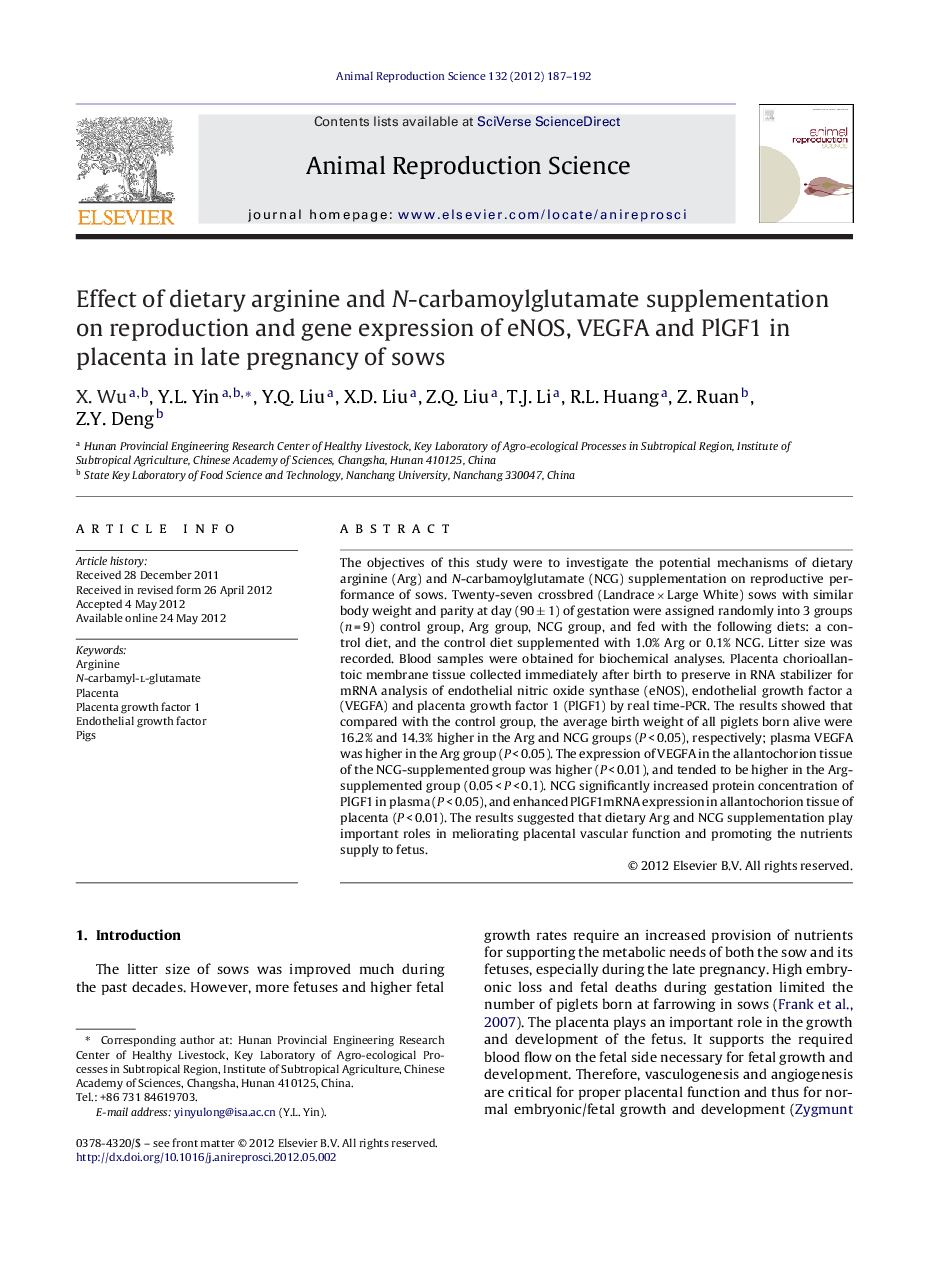| Article ID | Journal | Published Year | Pages | File Type |
|---|---|---|---|---|
| 2073598 | Animal Reproduction Science | 2012 | 6 Pages |
The objectives of this study were to investigate the potential mechanisms of dietary arginine (Arg) and N-carbamoylglutamate (NCG) supplementation on reproductive performance of sows. Twenty-seven crossbred (Landrace × Large White) sows with similar body weight and parity at day (90 ± 1) of gestation were assigned randomly into 3 groups (n = 9) control group, Arg group, NCG group, and fed with the following diets: a control diet, and the control diet supplemented with 1.0% Arg or 0.1% NCG. Litter size was recorded. Blood samples were obtained for biochemical analyses. Placenta chorioallantoic membrane tissue collected immediately after birth to preserve in RNA stabilizer for mRNA analysis of endothelial nitric oxide synthase (eNOS), endothelial growth factor a (VEGFA) and placenta growth factor 1 (PlGF1) by real time-PCR. The results showed that compared with the control group, the average birth weight of all piglets born alive were 16.2% and 14.3% higher in the Arg and NCG groups (P < 0.05), respectively; plasma VEGFA was higher in the Arg group (P < 0.05). The expression of VEGFA in the allantochorion tissue of the NCG-supplemented group was higher (P < 0.01), and tended to be higher in the Arg-supplemented group (0.05 < P < 0.1). NCG significantly increased protein concentration of PlGF1 in plasma (P < 0.05), and enhanced PlGF1mRNA expression in allantochorion tissue of placenta (P < 0.01). The results suggested that dietary Arg and NCG supplementation play important roles in meliorating placental vascular function and promoting the nutrients supply to fetus.
